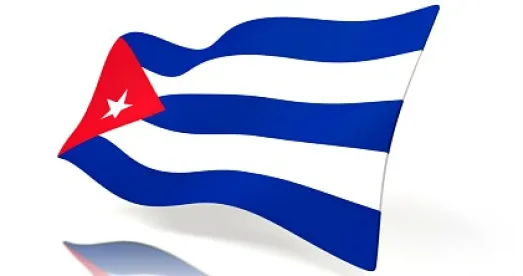With more flights, relaxing regulations, a historic presidential trip to Cuba, and news of hospitality services expanding into Cuba, the pathway into Cuba for hotels and hospitality companies seems smooth. But businesses should look out for the potential hurdles and compliance risks. Don’t fret – we can help you welcome your guests.
Reserve Your Room: Regulatory Background. Since President Obama announced the intent to improve our country’s relationship with Cuba and its people a year and a half ago, several revisions to the sanctions regime have focused on easing restrictions related to travel between the two nations. In February 2016, Cuba and the United States agreed to reestablish commercial air travel between the two countries. According to media reports, this agreement means the potential for 110 daily round-trip flights in and out of Cuba, including 20 daily flights to Havana.
Soon after the agreement was announced, major U.S. airlines submitted applications to fly commercial flights to Cuba. Though tourist travel is still prohibited, twelve fairly broad categories of travel are authorized, including family visits, travel for government work, journalism, professional research, humanitarian work and educational activities, and “people-to-people” educational travel.
In mid-March of this year, the U.S. Department of Treasury’s Office of Foreign Assets Control (OFAC) again revised the Cuban Asset Control Regulations (CACR), permitting more travel-related transactions. According to OFAC, the steps “expand opportunities for economic engagement between the Cuban people and the American business community.” The agency announced the changes in preparation for President Obama’s historic trip to Cuba.
-
People-to-people educational travel. Previously, the general authorization for educational travel required that trips took place under the sponsorship of an organization and required that a representative from the organization accompany the travelers. The regulations no longer require booking through an authorized organization when going to Cuba under the people-to-people educational travel general license. This means that U.S. persons can freely travel to Cuba to engage in educational exchange activities that enhance contact with the Cuban people, support civil society in Cuba, or promote Cubans’ independence from their government, as long as they keep records of the travel transactions and full-time schedule of activities.
-
Financial Transactions. The regulations enable U.S. banks to process U.S. dollars and travelers’ checks from Cuban banks, to conduct U-turn transactions in which Cubans have an interest, and to allow Cuban nationals to open bank accounts to receive payments in the U.S.
-
Business Presence. In addition, the regulations allow certain carrier and travel services providers to maintain a business presence in Cuba under a general license. This means that travel-service providers are authorized to establish and maintain subsidiaries, branches, offices, joint ventures, franchises, and other business relationships with any Cuban national, and enter into all necessary agreements or arrangements with such entity or individual.
These changes encourage much more travel between Cuba and the United States, ease restrictions that affect the ability to operate hotels and hospitality services in Cuba, and demonstrate a policy shift in favor of facilitating business, particularly in the travel sector, in Cuba.
Checking In: President Obama’s Historic Visit. In late March 2016, President Obama visited Cuba as the first sitting U.S. president to visit Cuba since Calvin Coolidge visited in 1928. Not only was President Obama’s visit a diplomatic feat as he quoted Cuban independence poet Jose Marti’s line: “Cultivo una rosa blanca” (“Cultivate a white rose”) in a live address on Cuban television, but it was also a marked invitation for more American business involvement in the island nation. Notably, Marriott CEO Arne Sorenson accompanied President Obama on his visit. According to media reports, Marriott is pursuing business opportunities to run or develop hotels on the island, and to provide training and opportunities for Cuban nationals to supply hotel needs.
Enjoy Your Stay: A Suite of Opportunities. As a result of the steady changes in the travel regulations, many hotels and hospitality companies are eager to take advantage of the opportunities that await in Cuba. Even before the most recent updates announced this year, Airbnb announced its presence in Cuba to provide bookings for U.S. travelers in the authorized travel categories. More recently, the company announced it has received permission from OFAC to open its doors to non-U.S. travelers as well. Starwood has reportedly signed three deals to open properties in Havana, apparently being the first hospitality company to obtain specific authorization from OFAC to operate hotels in Cuba. We think this signals OFAC’s willingness to use its licensing authority favorably for hotel and hospitality companies looking to develop in Cuba.
Earlier this month, a trade fair in Havana hosted a hall full of companies in the construction industry eager to get in on the ground floor of real estate and hotel projects that seem to be on the horizon. U.S. travel to Cuba reportedly increased between 77 percent in 2015, and this upward trend is expected to continue as a result of the recent regulatory changes. As the travel restrictions ease, travel-related businesses may gain greater latitude to develop the infrastructure to support such travelers and provide economic benefits to the Cuban people.
Check All Your Belongings: Compliance Challenges to Consider
-
Working under General Licenses. Though there is a general license authorizing certain travel services, providing lodging services is still prohibited unless specifically licensed by OFAC. Tourist travel is still prohibited by statute. Businesses that wish to operate under the general licenses must put together procedures that comply with these restrictions.
-
Getting Authorization. In order to effectively negotiate and finalize agreements with Cuban counterparties for the provision of services outside the general licenses, U.S. companies must receive authorization from OFAC. This makes doing business difficult because putting in the resources and time to apply and receive authorization may not make business sense unless companies have concrete opportunities. OFAC is currently inundated with applications and Cuba questions. Hotel and hospitality companies looking to expand in Cuba should plan as early as possible and be prepared for the license application process and approval to take several months.
-
Restrictions on Property and Development. The inability to own property outright under Cuban law is an obstacle for many hotel companies that seek to invest in facilities that will maintain and build their brands. It is a challenge to find an existing property to develop or property on which to build. It can be an even greater challenge to import the materials needed to develop and maintain the property. Even if a company acquires authorization to build and develop a hotel, there will be a plethora of suppliers who may also need to seek authorization. S. businesses must plan accordingly when seeking authority to develop properties.
-
Dealing with the Cuban Government. S. businesses will have to learn quickly about negotiating with the Cuban government and getting government approvals because most potential counterparties are state-owned, and each step in the development process will likely include government involvement. This also raises corruption risks (Don’t forget the FCPA!) as companies wine and dine potential counterparties and work toward getting permits.
-
Employee Base. For foreign companies seeking to establish a brand in the market, restrictions on hiring may pose extreme challenges. Employment in Cuba is not left to market dynamics. Hiring Cuban employees involves working with the Cuban government and hiring the personnel designated by the government. Generally the employer is required to pay the Cuban government directly, and the government pays the employees. Complying with such Cuban laws may fly directly in the face of a company’s business model and may compound the U.S. law compliance challenges.
-
Cuban Law. Having counsel who understand the Cuban legal landscape and regulatory challenges will be crucial for U.S. companies. Structuring deals in Cuba that comply with Cuban law can be tricky. The legal infrastructure in Cuba for foreign investment is not well developed, so U.S. companies will face a steep learning curve to successfully finalize and implement deals in Cuba. Moreover, Cuban lawyers have very different ethical obligations than U.S. clients may be used to (including a virtual complete lack of attorney-client privilege).
Even with the host of challenges, exploring the Cuban market presents an intriguing opportunity for hotel and hospitality companies. With the right compliance strategy and the right team, U.S. businesses could enjoy their stay in Cuba for years to come.




 />i
/>i

